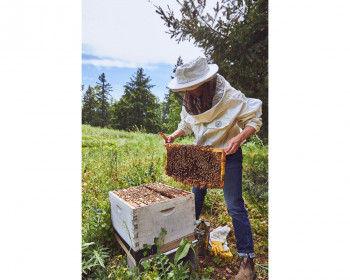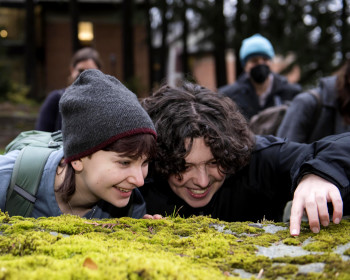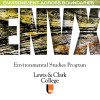Stay Involved
Open gallery

January 21, 2011
Stay involved. If you want to go back to school or find a job in your field of interest you have to stay involved. For me, the greatest contrast between college and the outside world is the level of passion and engagement. At Lewis and Clark I felt almost effortlessly connected to environmental issues; Proctor or Podobnik would raise concerns about the latest environmental legislation and friends in the library would debate land use and conservation strategies. Whether through these avenues or through my own research, this comprehensive knowledge allowed me to speak confidently to colleagues, employers, and friends. Once you graduate, it is well worth the extra effort in order to stay engaged with what you love.
As I unfortunately came to realize, my perfect, ideal job is hard to get. Whether secretary or barista, the opportunity for a lively debate over name-your-environmental-issue-of-choice quickly diminishes once you leave the Lewis and Clark campus. I feel fortunate to have a few friends with whom I can ramble away about the environmental world; we exchange newspaper articles, nonprofit job openings, and graduate school research ideas. But on a day-to-day basis I find it difficult to remain connected to the field I care so much about. Engagement in the environmental community is no longer a given.
Staying involved became my life-link to keeping my mind astute and my future opportunities open. It’s fine if your job isn’t in your desired field, but work to stay engaged with what you are passionate about. Over the course of a year I interned for two environmental nonprofits. In the first, I worked on local land-use policy, and while policy work is not my favorite, I felt joined to something bigger. The second internship, a local collaborative conservation effort, threw me into meetings with key local players. Taking meeting notes was less than glamorous, but I got to listen in on the big ideas. Both of these internships were only a couple days a week, but it was enough to make the difference. I made connections, expanded my network, got my name out there, but most importantly, I kept my mind sharp.
Liberal arts education, and the environmental studies major in particular, teach you the importance of connecting interdisciplinary ideas. The ecological questions you might ask with Dr. B. [Dr. Bierzychudek] are contextualized by the framework built in environmental sociology, economics, or the core ENVS classes. Even once the details are forgotten, what remains is the value of multiple perspectives, that various drivers, pressures, states, impacts, and responses exist and should be examined.
From summer positions, internships, and a graduate class I have gained the confidence and context to discuss current environmental issues with future employers and potential graduate school advisors. Because I understand a diverse array of environmental issues, I am able to apply to more positions at more organizations. During interviews, I stress that I have a skill set that allows me to handle the immediate job opening, but also act as a team player within the organization and with outside agencies. When I spoke to potential forest ecology advisors in the University of Washington’s graduate program I was passionate, up to date on local issues, and able to convey my diverse knowledge base. Lewis and Clark’s excellent biology program provided the concrete skills I needed, the ENVS program built my foundation of broad knowledge, but my outside involvement demonstrated my passion for and commitment to the field. Or so I hope.
More Environmental Studies Stories
Environmental Studies is located in room 343A of John R. Howard Hall on the Undergraduate Campus.
MSC: 62
email envs@lclark.edu
voice 503-768-7790
fax 503-768-7620
Symposium Advisor Jessica Kleiss
Environmental Studies
Lewis & Clark
615 S. Palatine Hill Road MSC 62
Portland OR 97219


